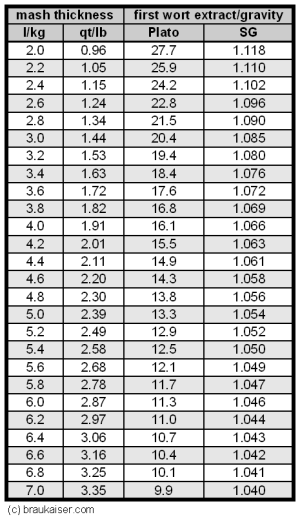Ksosh
Well-Known Member
So apparently I get about 10% efficiency with my partial mash brewing, according to Beer Smith. I don't get it. I seem to hit my temps (~170 when grains go in ~3 gal of water), keep the temp constant between 150 and 160 for 45 mins-1 hour, 'tea bag' grains in 165-170 degree water, let it sit for 10 mins, dump tea water into main water, and then bring to boil and do as normal. Last batch I made the estimate was 1.063, I got 1.050 (apparently most from extract).
Anyone have a tip as to what I should tweak first to try and figure out what's wrong with my process? Would having too much water screw it up? (~4 pounds grain, 3 gallons of pot water, 1.5 gallon sparge water).
Anyone have a tip as to what I should tweak first to try and figure out what's wrong with my process? Would having too much water screw it up? (~4 pounds grain, 3 gallons of pot water, 1.5 gallon sparge water).



